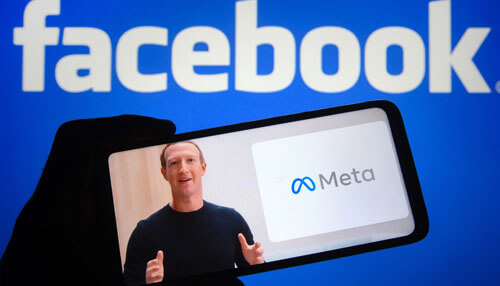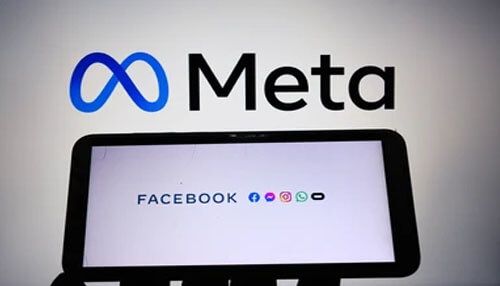The parent company of Facebook, Metaverse Tokens platform Inc., witnessed the biggest daily market drop in Crypto Wallet value for a US company ever, recording a dip in the market share price of 26%. This transpired just after the tech giant revealed a decline in active daily users and a drop in earnings. According to co-founder and chairman of Yat Siu, Animoca Brands, the sharp decline in Meta’s share price may be an indication of a bigger trend where users are starting to ask questions about the centralized Web2 model. Recently, people have been using the terms “Web 3” and “Metaverse” interchangeably as they have so many similarities.
A key difference, though, is that Web 3 is mainly about who will own and control tomorrow’s internet, while Metaverse centers on how users will experience the internet of the future. The Metaverse is the Web3 wave that decentralizes buying and building real estate, hosting fashion shows, and monetizing gaming.
The Metaverse is not an isolated, virtual world and it is not going to replace the internet. Web 3.0 blockchain technology is the latest buzz in the cryptocurrency and blockchain markets as it is considered the “internet of the future.” It is the next stage of web evolution that would make the internet more intelligent and process information with near-human-like intelligence through the power of AI systems. Web 3 has greatly enhanced digital experiences for users while also ensuring adequate security for applications online.
The idea of a virtual universe where people can shop, play games, buy, and trade currencies and objects are quite thrilling. Metaverse coins are being touted as the crypto to watch for 2022, and a lot of people have actively shown interest in augmented and virtual reality. Future tech enthusiasts can invest in the next digital frontier in the metaverse.
However, specialists proclaim that any investment made in the metaverse is risky. Isn’t that the same for all kinds of cryptocurrency investments? Since the rebrand of Facebook as Meta on the 28th of October 2021, the idea that inspired the name Meta has been the center of discussion. Even though it may look that the Metaverse is the brainchild of Meta’s wild ambition, that is not true
Meta Platform Inc. In late 2021 publicly changed its name from Facebook, indicating its plan to concentrate more on the metaverse. However, its battles have overlapped that of its competitors to earn double-digit percentage gains.
Facebook’s parent company has shown a history of rebounding after earnings disappointments or plunges, but this time appears to be different, as the stock is coming off its lowest close since May 2020, and is down more than 45 percent from its September peak. The plunge not only pushed Meta out of the top 10 largest global companies by market value but also left it trading at its cheapest price on record. The weaknesses in Meta’s stock have made it attractive in terms of traditional valuation metrics.
Despite this plunge, the metaverse tokens have seen a tremendous increase in the past week. A metaverse platform established on Ethereum blockchain known as Decentraland has witnessed the price of its native token surge significantly. The Decentraland native token, MANA, saw a surge in price by more than 20% in one week, with the price moving from $2.19 to the $2.60 support mark.
Decentraland, as the name implies takes pride in being the very first fully decentralized digital world. The platform’s DAO possesses the primary smart contracts that run the Decentraland metaverse, precisely the LAND contract that enables users to sell and buy virtual land. The Sandbox (SAND) follows closely behind Decentraland in terms of market capitalization. The native SAND token has appreciated by a whopping 1,670% in the past 12 months.
Analysts suggest that the surge in metaverse tokens could be a result of people switching from Web 2.0 to Web 3.0 and that Web2 firms such as Meta are losing their best and creative minds to Web3 projects and companies. However, there were rumors that Meta would be buying Sandbox, but it was debunked in a tweet by @nftethics.
Declines like this one in the Web 2 space are expected with the growing patronage of Web 3.0, and big tech companies are somewhat migrating to Web 3, with Facebook changing its name to Meta and Apple, alongside Microsoft, entering the metaverse space.



